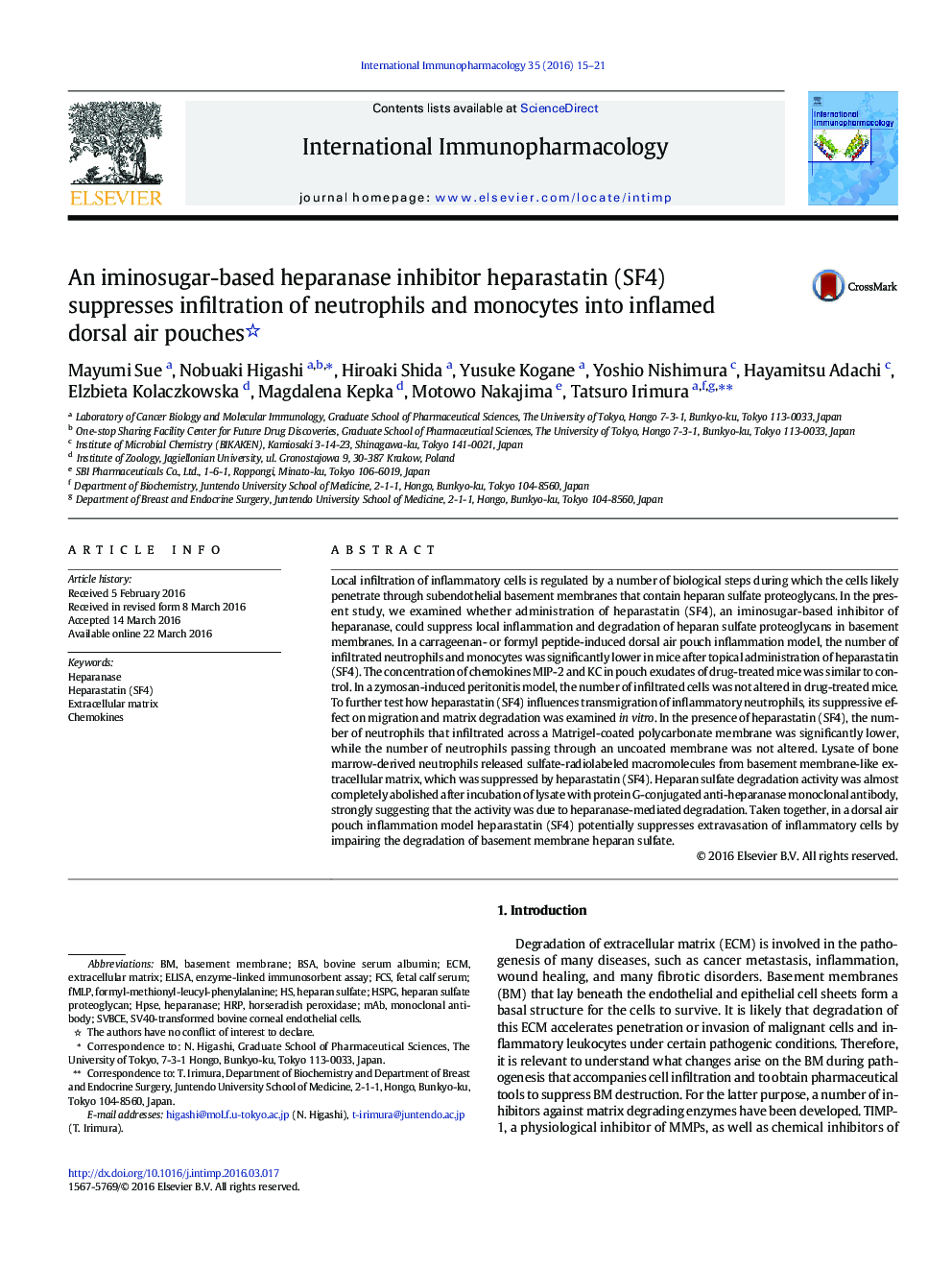| کد مقاله | کد نشریه | سال انتشار | مقاله انگلیسی | نسخه تمام متن |
|---|---|---|---|---|
| 2540293 | 1559755 | 2016 | 7 صفحه PDF | دانلود رایگان |

• Heparastatin (SF4) lowered infiltrating cell numbers in inflamed air pouches.
• Heparastatin (SF4) significantly suppressed invasion of neutrophils in vitro.
• Heparastatin (SF4) suppressed degradation of heparan sulfate in basement membrane.
• Therapeutic application of a heparanase inhibitor in inflammation is proposed.
Local infiltration of inflammatory cells is regulated by a number of biological steps during which the cells likely penetrate through subendothelial basement membranes that contain heparan sulfate proteoglycans. In the present study, we examined whether administration of heparastatin (SF4), an iminosugar-based inhibitor of heparanase, could suppress local inflammation and degradation of heparan sulfate proteoglycans in basement membranes. In a carrageenan- or formyl peptide-induced dorsal air pouch inflammation model, the number of infiltrated neutrophils and monocytes was significantly lower in mice after topical administration of heparastatin (SF4). The concentration of chemokines MIP-2 and KC in pouch exudates of drug-treated mice was similar to control. In a zymosan-induced peritonitis model, the number of infiltrated cells was not altered in drug-treated mice. To further test how heparastatin (SF4) influences transmigration of inflammatory neutrophils, its suppressive effect on migration and matrix degradation was examined in vitro. In the presence of heparastatin (SF4), the number of neutrophils that infiltrated across a Matrigel-coated polycarbonate membrane was significantly lower, while the number of neutrophils passing through an uncoated membrane was not altered. Lysate of bone marrow-derived neutrophils released sulfate-radiolabeled macromolecules from basement membrane-like extracellular matrix, which was suppressed by heparastatin (SF4). Heparan sulfate degradation activity was almost completely abolished after incubation of lysate with protein G-conjugated anti-heparanase monoclonal antibody, strongly suggesting that the activity was due to heparanase-mediated degradation. Taken together, in a dorsal air pouch inflammation model heparastatin (SF4) potentially suppresses extravasation of inflammatory cells by impairing the degradation of basement membrane heparan sulfate.
Journal: International Immunopharmacology - Volume 35, June 2016, Pages 15–21